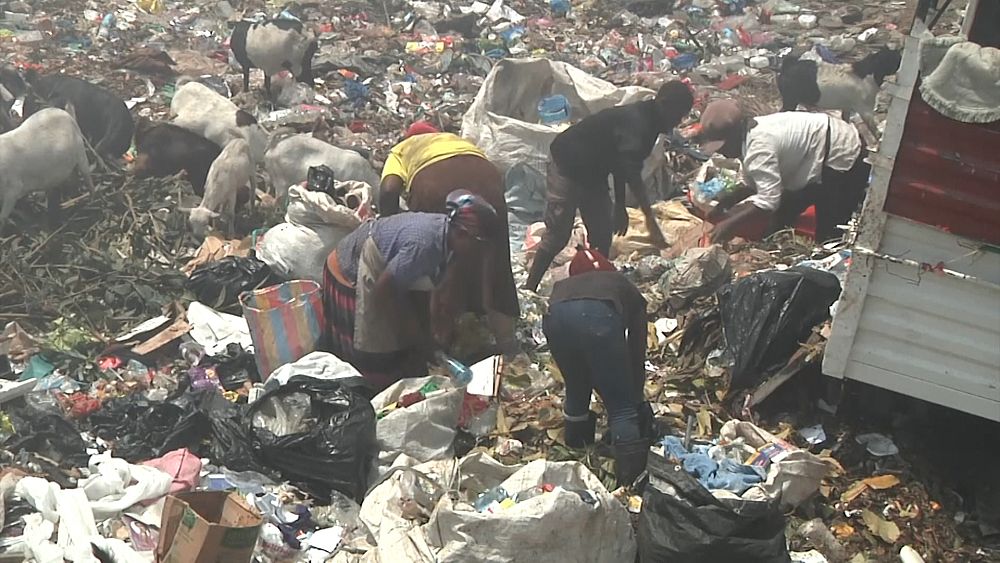Thousands of people from Nairobi’s poorest districts who typically scramble through waste to earn money can no longer do so due to COVID-19.
It’s East Africa’s biggest dumpsite and on any normal day, about 850 tonnes of rubbish is left here. The waste workers have no physical protection from potentially toxic or hazardous waste, which ends up there.
But a partial lockdown of Nairobi, Kenya and the closure of businesses, hotels and restaurants means there’s much less rubbish to recycle.
Mary Mbinya is among those who rely on recycling to make a living.
“The virus has affected our activity. Most of us can hardly afford to pay rent. There is no work. We can spend a whole day without making any money. Sometimes only one truck brings trash and yet there are too many trash pickers here,” Mbinya said.
The process normally entails separating recyclables from mounds of waste before taking them to recycling facilities.
Mary Wambui has four children and has earned an income here, dealing in plastic and paper recycling for the past five years.
“Coronavirus has negatively affected us. The women that bring the recyclable plastic and paper can only bring a meagre two or three kilogrammes,” Wambui said.
“A lot of trash from outside the country would end up here from the airport, but now we can hardly get any. We would also get some waste food to feed our livestock such as pigs but nowadays we can hardly get enough,” she added.









